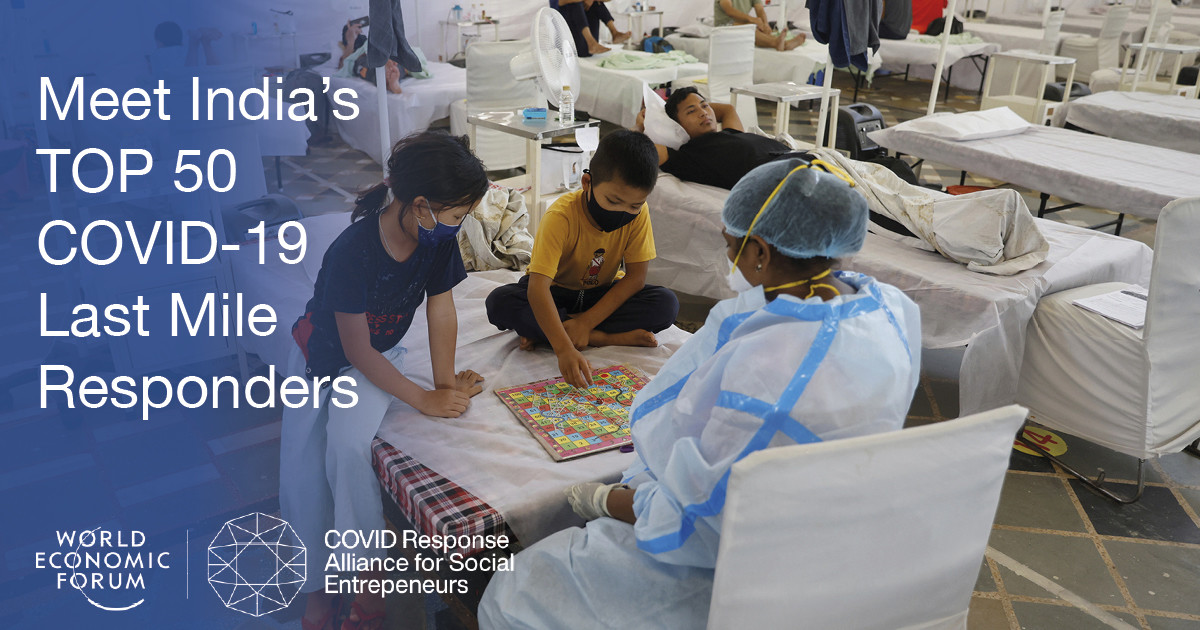100 leading organizations are supporting social entrepreneurs worldwide
Social enterprise Kuli Kuli creates sustainable superfood snacks and naturally energizing moringa powders that improve the health of women, and the planet
Image: Kuli Kuli
Stay up to date:
Ghana
- COVID-19, growing inequality, and rising energy and food prices have disrupted progress on sustainable development
- Social entrepreneurs and innovators have stepped up and are contributing to social and economic health around the world
- The Global Alliance for Social Entrepreneurship is a coalition of 100 committed private, public and societal organisations working together in support of over 100,000 social entrepreneurs worldwide
The impact of social entrepreneurs.
The Global Alliance for Social Entrepreneurship – originally the COVID Response Alliance for Social Entrepreneurs – launched in April 2020 in response to the devastating effects of the pandemic.
Co-founded by the Schwab Foundation together with Ashoka, GHR Foundation, Skoll Foundation and Yunus Social Business, the Alliance has since become the largest multistakeholder coalition in the development sector hosted by an international organization.
It has grown to 100 members – ranging from businesses and international organizations to funders, investors, intermediaries, academic institutions and media agencies – who collectively support over 100,000 social entrepreneurs worldwide. These social entrepreneurs have a direct or indirect impact on the lives of around 2 billion people. Together, they have worked to provide access to critical services and emergency relief during the pandemic and to make a concrete impact on creating an inclusive and sustainable world where no one is left behind.
What is the World Economic Forum doing to champion social innovation?
What's the challenge?
Oxfam reports that this year the combination of the pandemic, inflation and the already stretched economic capacity in many countries is pushing 260 million people into extreme poverty, with the total number now rising to 860 million, undermining the ability to guarantee a healthy future for generations to come.
For decades, social entrepreneurs have stepped up to fill critical gaps and serve excluded and vulnerable groups. This was again demonstrated during the pandemic and showcased in the report Leaders on the Front Line. Yet, these social entrepreneurs often lack the resources to do their work to their capacity and leaders do not ask them to join in making decisions and setting agendas.
Social entrepreneurs have a track record of pioneering new ways of delivering impact on the ground, building inclusive markets designed to do good and advocating for a more sustainable and equitable world. In partnership with the World Economic Forum, the Schwab Foundation community of leading innovators alone has helped improve over 700 million lives over its two decades of work. The success of their approaches and perspectives demands attention.
Our approach to supporting social entrepreneurs.
The Global Alliance for Social Entrepreneurship is an integral part of the Schwab Foundation and its community of 416 social entrepreneurs, as well as of the Forum community of 1,000 members comprising corporate leaders, heads of state, ministers and policy-makers, experts and academics, international organizations, youth, technology innovators and representatives of civil society.
Building on its unique position, the alliance brings together public and private sector leaders in support of a social innovation movement transforming society into a more just, sustainable and equitable world.
Examples of how our members have or are taking action include:
Supporting COVID-19’s first responders
The India Response Effort, led by alliance members Catalyst2030/NASE and Aavishkaar Group, mobilized support from global and national intermediaries for social entrepreneurs in India, doubling up as both front line and last-mile responders during the pandemic. The initiative brought together over 140 sector leaders and social entrepreneurs in peer learning calls that allowed the sharing of key lessons and paved the way for future collaborations. The effort spotlighted India’s Top 50 COVID-19 Last Mile Responders and their extensive COVID-19 support, which impacted 171 million people in four vital areas of need: prevention and protection, COVID-19 treatment and relief, inclusive vaccine access, and securing livelihoods.
India’s leading COVID-19 last-mile responders
Advancing racial justice
Alliance members are demonstrating that by resourcing and amplifying social entrepreneurs of colour, leaders can accelerate innovation, support marginalized communities and take action against racism. The COVID-19 pandemic has disproportionately affected racial minorities. The initiative seeks to dismantle long-standing inequities faced by minority communities, including unequal access to finance, and to bundle the insights of the social impact sector to accelerate transformative change.
Promoting corporate partnerships and sourcing from social entrepreneurs
By integrating social enterprises into their supply chains, corporations can deliver on their impact goals and contribute to a more sustainable and equitable world. Thanks to the work of 100 corporate-ready social enterprises, and through studies such as Corporate Ready and The Social Procurement Manual and executive roundtables, members of the alliance have joined in action to bring social entrepreneurs closer to corporate supply chains.
Accept our marketing cookies to access this content.
These cookies are currently disabled in your browser.
Financing "SMEs with impact"
Small and medium-sized enterprises (SMEs) are essential engines for growth and play a key role in creating jobs and supporting sustainable livelihoods. Yet, the financing gap for SMEs, particularly in emerging markets, is widening. By identifying pathways for financing these growing businesses and mobilizing global and local investors, the alliance aims to open new doors to capital for social entrepreneurs. Initial projects are live in Ghana and Zambia.
How can you get involved?
The time to stand by social entrepreneurs as vital responders to COVID-19 and as pioneers of an inclusive society is now. We call on all sectors to join us in action today.
Businesses, investors, governments, intermediaries, academics and media who share the alliance’s commitment to social entrepreneurship and innovation are invited to join its members in action. You can reach out to the Global Alliance secretariat at globalalliance4se@weforum.org
Forum Stories newsletter
Bringing you weekly curated insights and analysis on the global issues that matter.



